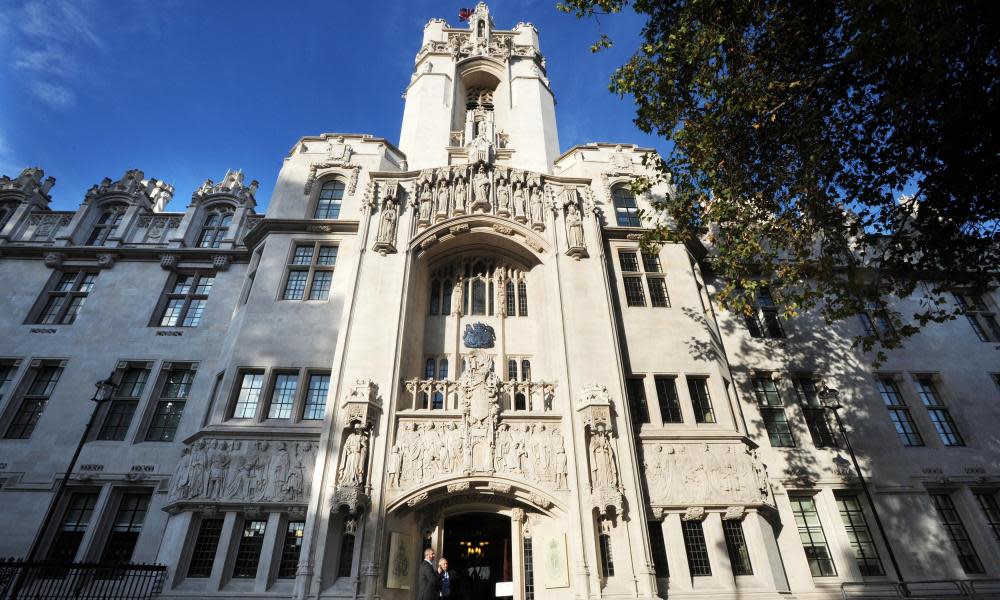'Harsh' criminal record checks hinder rehabilitation, court told

The government’s “harsh” system of criminal record checks prevents people with minor past convictions from applying for jobs and moving on with their lives, the supreme court has been told.
Several unnamed claimants in England, Wales and Northern Ireland have brought a challenge against the system, claiming that it hinders rehabilitation.
One of them, a woman identified only as P, who is represented by the human rights organisation Liberty, committed two minor offences – theft and failing to answer bail – while she had a then undiagnosed mental illness in 1999.
She has not reoffended since and wants to work as a teaching assistant. However, she has to reveal the convictions when applying for jobs and, in explaining the circumstances of the offences, has to reveal details of her medical history.
The criminal record checks system, known as the Disclosure and Barring Service (DBS), requires past offences to be revealed in a number of circumstances. These include where the conviction or caution is serious, where it is current and not deemed to have been spent under the Rehabilitation of Offenders Act, where it resulted in a custodial sentence and where someone has more than one conviction.
The court of appeal said the scheme – in relation to multiple convictions and certain specified offences – breached individuals’ right to private and family life under article 8 of the European convention on human rights.
But Sir James Eadie QC, representing the Home Office and Ministry of Justice, told the supreme court that the scheme “as a whole seeks to safeguard the vulnerable and help ensure that employments, offices and licences which require a particularly high level of trust continue to command public confidence.
“It is for those employees to consider the relevance of the information provided in the context of the particular case.”
Caoilfhionn Gallagher QC, for the charity Unlock, which has intervened in the case, argued in written submissions that people with relatively minor convictions and cautions “face stigma and obstacles because of their criminal records often many decades after they have been sentenced or cautioned and often throughout their adult lives despite their criminal records dating from childhood.
“These adverse effects are felt in particular by children in care as there is a substantial body of evidence indicating that their youthful indiscretions are disproportionately criminalised … and that behaviour which is normal or common in a family home environment (teenage door-slamming, threats during an argument with adults) attracts police attention.”
Christopher Stacey, a co-director of Unlock, a charity for people with convictions, said before the hearing: “Our research shows the significant number of people who are being unnecessarily anchored to their past as a result of a DBS filtering system which is blunt, restrictive and disproportionate. In the last five years alone, over 1m youth criminal records were disclosed on standard or enhanced criminal record checks that related to offences from over 30 years ago.
“The current system has multiple, harsh consequences and damaging effects on individuals – in particular it deters people from applying for employment, and for those that do apply it brings high levels of stress, anxiety and feelings of shame and stigma. It acts as an additional sentence that often runs for life. It desperately needs reform.”
At the opening of the hearing, the president of the supreme court, Lady Hale, congratulated Eadie on his recent knighthood. As “Treasury Devil” – the title given to the barrister who represents the government in the most significant and sensitive cases – Eadie regularly appears at the UK’s highest court.
“Whether [the knighthood] makes your submissions any more persuasive, we will have to wait and see,” Hale remarked.
The hearing continues, and judgment is expected to be reserved until a later date.

 Yahoo News
Yahoo News 
